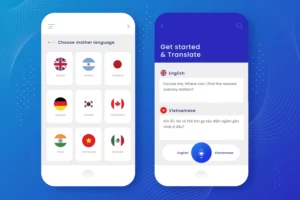With digital transformation being the top priority for businesses, organizations have to partner with more hardware and software vendors to drive their digital initiatives to success. Sadly, they don’t understand the shady sales tactics these vendors use to rip businesses off and end up playing in their hands.
As a result, it is much easier for vendors to trap IT leaders into signing contracts with multiyear vendor lock-ins. This limits an organization’s capacity to perform at their full potential as they have to deal with many restrictions vendors impose on them. With the number of third party attacks on the rise, you don’t want to be stuck with a wrong vendor for years as it can have security repercussions for your business.
It can not only dent your business reputation but can also lead to financial losses. That is why it is important to make your vendor choices carefully. So, how can CIOs save themselves from falling prey to these shady tactics?
That is exactly what we will discuss in this article. In this article, you will learn about four shady tactics vendors use to trick IT leaders and how IT leaders can save themselves from it.
4 Vendor Sales Negotiation Tactics IT Leaders Should Keep an Eye On
Here are four vendor sales negotiation tactics that vendors use to hook IT leaders into a vendor lock in.
1. Industry Dominance
When choosing a vendor, focus on how they can not only meet your business challenges but also your industry challenges. Select a vendor that specializes in your particular niche and has a great track record working with businesses in your industry.
Read reviews and ratings on how their facilitating other organizations in your industry resolve their biggest pain points. What strategic commitments do they have and what strategic initiatives have they undertaken in the past?
Most vendors will try to reflect that your business lag far behind your competitor and industry to speed up the contract signing process and push their solutions like cheap dedicated server hosting.
Even if you have already signed up with them, they will use this tactic to persuade you to purchase a more premium product or service or upgrade your existing package to a higher tier one.
They can not only use their sales teams for this purpose but can also use internal partners and consultants to apply pressure on you. This can create doubt in your mind and you can fall in their trap.
The best way to save yourself from this vendor trick is to understand how valuable your organization is for the vendor. For this, you need visionary leadership and a solid project management team.
More importantly, you need a strategy that can help you extract maximum value out of vendors instead of being a passive client. By understanding how valuable you are as a client to a vendor, you can navigate through these types of conversations easily.
2. Trying To Gain Product Leverage
Most vendors just need a foot in the door and once they get it, they will slowly start imposing their vision on your business. They will give you a product roadmap and force you to fit into their vision by tweaking your business processes. They might not be as direct initially but slowly start to dictate everything.
As an IT leader, it is important for you to ensure that both your vendor and your business is one the same page when it comes to future objectives. If there is a disconnect, it is a clear sign that something is wrong. They might try to convince you to adopt the next generation technology and solution such as VPS Singapore to achieve your goals but the fact is that you might not need the latest and greatest technology to turn your vision into reality.
IT or business leaders who can detect it can save their organization from falling in this trap. You need to be crystal clear about what you actually need to achieve your goals. Ask yourself, do you really need the vendor solution? If yes, will it really be effective? How much value does it bring to your organization? By answering these questions you can easily tell whether the vendor is trying to push something that your business doesn’t really need.
3. Controlling the Pace of the Projects
It is common for software vendors to use their sales and customer service teams to paint a picture about the project timeline. By defining the project milestones and giving a deadline to each milestone, it gives vendors the powers to speed up or slow down the project according to their needs.
This allows them to influence your decision making and force you to play according to their rules. It might be so subtle that your business won’t even notice it but you will slowly start losing control over your project. They could even exert pressure via their top down partnership.
4. Using Relationship to Their Advantage
Software vendors send their software executives to showcase their understanding of your challenges and convince CEOs that you can deliver the tailor made solution for all your business needs like cheap dedicated hosting. On the flipside, popular vendors use their credibility to show that they are the best at what they do.
They usually keep the conversation focused on the future instead of talking about the past but IT leaders should take historical performance into account as it can have a massive influence on project implementation.
Software vendors will try to set ambitious goals and high expectations to impress IT leaders and will be more inclined to establish a future point of interaction.
The best way to avoid this trap is to look at the history and context. If you want to build a long term relationship, you should discuss both the advantages and hurdles. Since most IT companies are ill prepared to justify investments they have made, software vendors can easily tilt the scale in their favors.
Which vendor sales negotiation tactic have you fallen victim to? Let us know in the comments section below.







